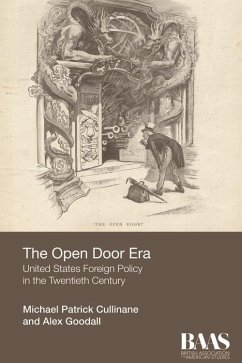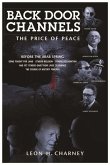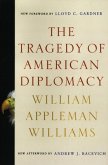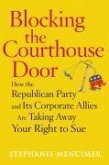Examines the Open Door, the most influential U.S. foreign policy of the twentieth centuryIn 1899, U.S. Secretary of State John Hay wrote six world powers calling for an 'Open Door' in China that would guarantee equal trading opportunities, curtail colonial annexation, and prevent conflict in the Far East. Within a year, the region had succumbed to renewed colonisation and war, but despite the apparent failure of Hay's diplomacy, the ideal of the Open Door emerged as the central component of U.S. foreign policy in the twentieth century. Just as visions of 'Manifest Destiny' shaped continental expansion in the nineteenth century, Woodrow Wilson used the Open Door to make the case for a world 'safe for democracy', Franklin Roosevelt developed it to inspire the fight against totalitarianism and imperialism, and Cold War containment policy envisioned international communism as the latest threat to a global system built upon peace, openness, and exchange. In a concise yet wide-ranging examination of its origins and development, readers will discover how the idea of the Open Door came to define the American Century.Key FeaturesUncovers the ideological wellspring of U.S. foreign policy in the twentieth centuryPresents debates over U.S. foreign policy, including the 'Wisconsin School' critique of the Open Door as a mechanism of informal empireReveals both the consistency of U.S. foreign policy thinking and offers a deeper context to critical foreign policy decisionsContextulises the roots of contemporary U.S. policy
Dieser Download kann aus rechtlichen Gründen nur mit Rechnungsadresse in A, B, BG, CY, CZ, D, DK, EW, E, FIN, F, GR, HR, H, IRL, I, LT, L, LR, M, NL, PL, P, R, S, SLO, SK ausgeliefert werden.









